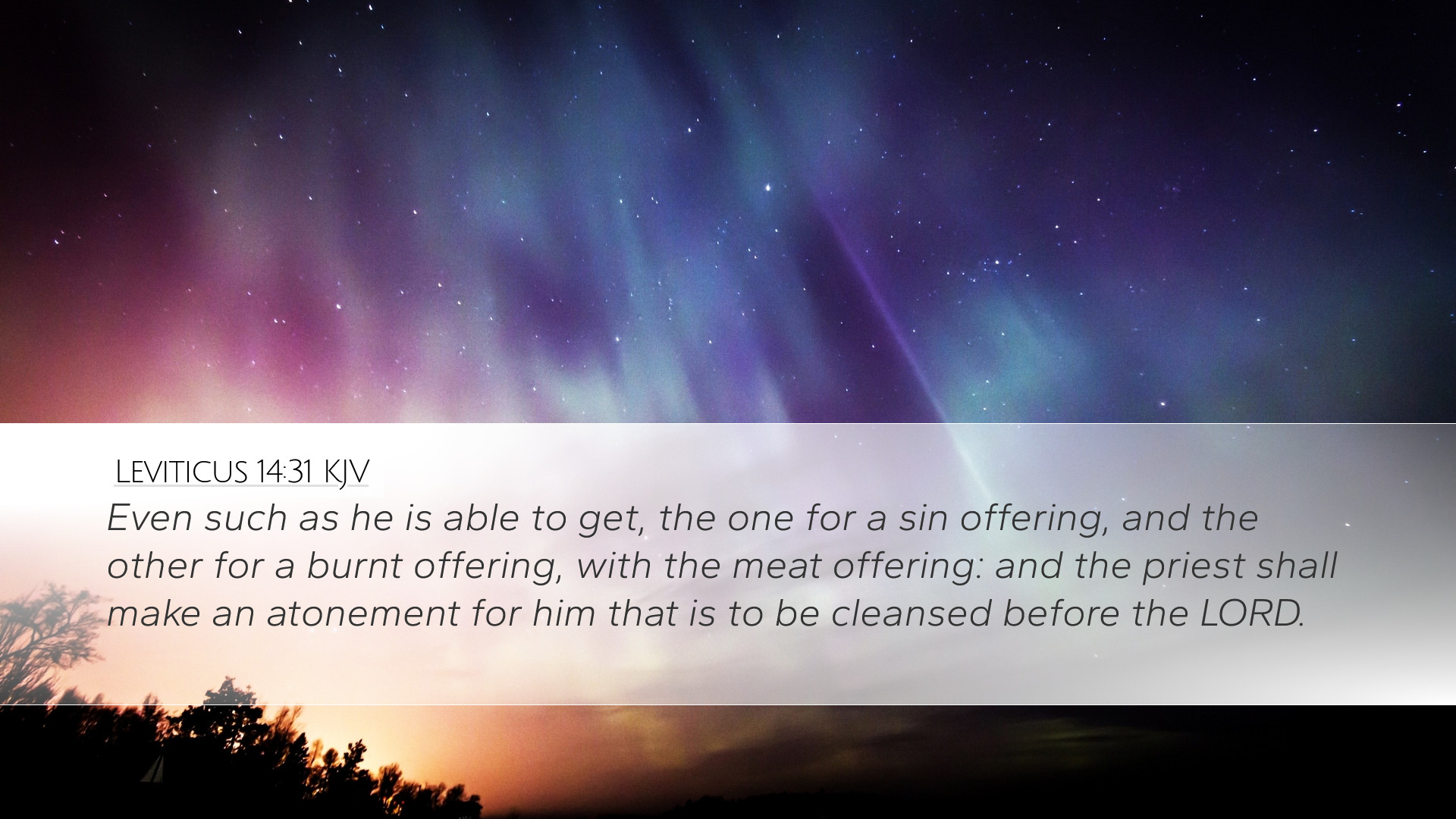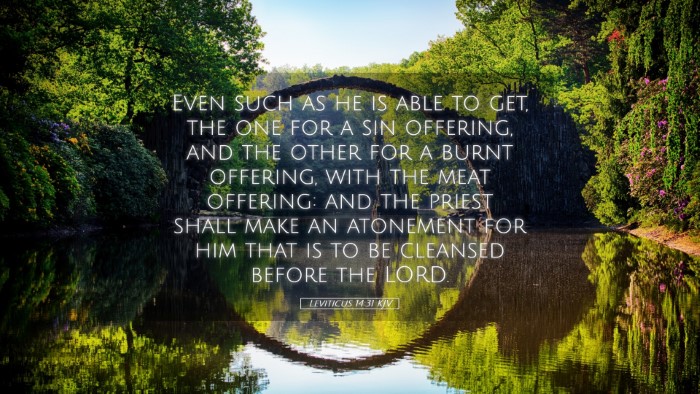Commentary on Leviticus 14:31
Verse: "And if he be poor, and cannot get so much; then he shall take one lamb for a trespass offering to be waved, to make an atonement for him, and one tenth deal of fine flour mingled with oil for a meat offering, and a log of oil."
Introduction
The detailed regulations in Leviticus 14 revolve around the topic of cleansing those afflicted by leprosy, a condition that significantly impacted their social and religious standing. In verse 14:31, God's provision for the poor is critical, highlighting His concerns for justice and equity within His covenant community.
Contextual Analysis
The chapter presents the ceremonial laws concerning leprosy, emphasizing both physical and spiritual cleansing. These regulations were meaningful not only for health considerations but also for spiritual implications. In God's covenant with Israel, the exclusion of the unclean was essential for maintaining purity among His people.
Insights from Commentaries
-
Matthew Henry:
Henry highlights the compassion embedded within this aspect of the law. He observes that God acknowledges the socioeconomic disparities among His people and provides a means for the poor to participate in sacrificial worship despite limited resources. The mention of a lamb along with fine flour and oil indicates a recognition of the poor's difficult position while ensuring they receive access to atonement.
-
Albert Barnes:
Barnes elaborates on the significance of the offerings, breaking them down into different components. He points out that the lamb stands as a primary offering, symbolizing Christ's redemptive sacrifice, while the fine flour mixed with oil reflects the need for substantial humility coupled with dedication. This dimension is critical in understanding God’s merciful provision to those who may feel excluded due to their poverty or condition.
-
Adam Clarke:
Clarke draws attention to the logistical aspects of the offerings and the symbolism of the oil which represents the Holy Spirit. He provides insight into the practical implications for priests, noting how this law allowed priests to maintain their role in ministering to every member of the community, regardless of socioeconomic status. Such inclusivity is an illustration of God's love and redemption reaching all people.
Theological Implications
This passage underscores key theological themes regarding God’s mercy and justice. It shows how God reaches out to those marginalized due to their socioeconomic stature. The poorer individual, who is unable to afford the full range of offerings, is nevertheless afforded an opportunity for atonement, illustrating God’s grace in the sacrificial system.
Practical Applications for Leaders and Scholars
For pastors and theological scholars, this verse serves as a vital reminder of the importance of inclusivity and compassion in ministry. The Church today is called to ensure that those who are economically disadvantaged are given equitable access to spiritual resources and communities of faith.
- Compassionate Ministry: Striving to minister to those in need, recognizing their inherent value in the sight of God.
- Inclusivity in Worship: Creating environments where all can participate in worship without feeling marginalized.
- The Gospel's Reach: Understanding that the grace of God transcends social barriers and that Christ’s sacrifice is for all, irrespective of status.
Conclusion
Leviticus 14:31 provides profound insights into the nature of God’s grace, justice, and mercy. It emphasizes the necessity for a holistic approach to ministry that addresses both the spiritual and practical needs of individuals. As leaders in faith communities reflect on this passage, they are challenged to embody Christ's inclusiveness, ensuring that their ministries mirror the very heart of God toward those in need.


